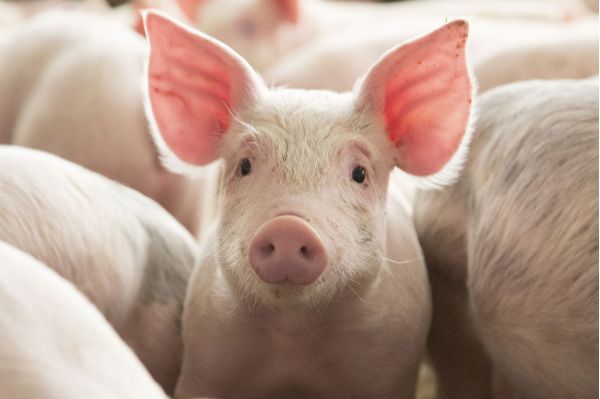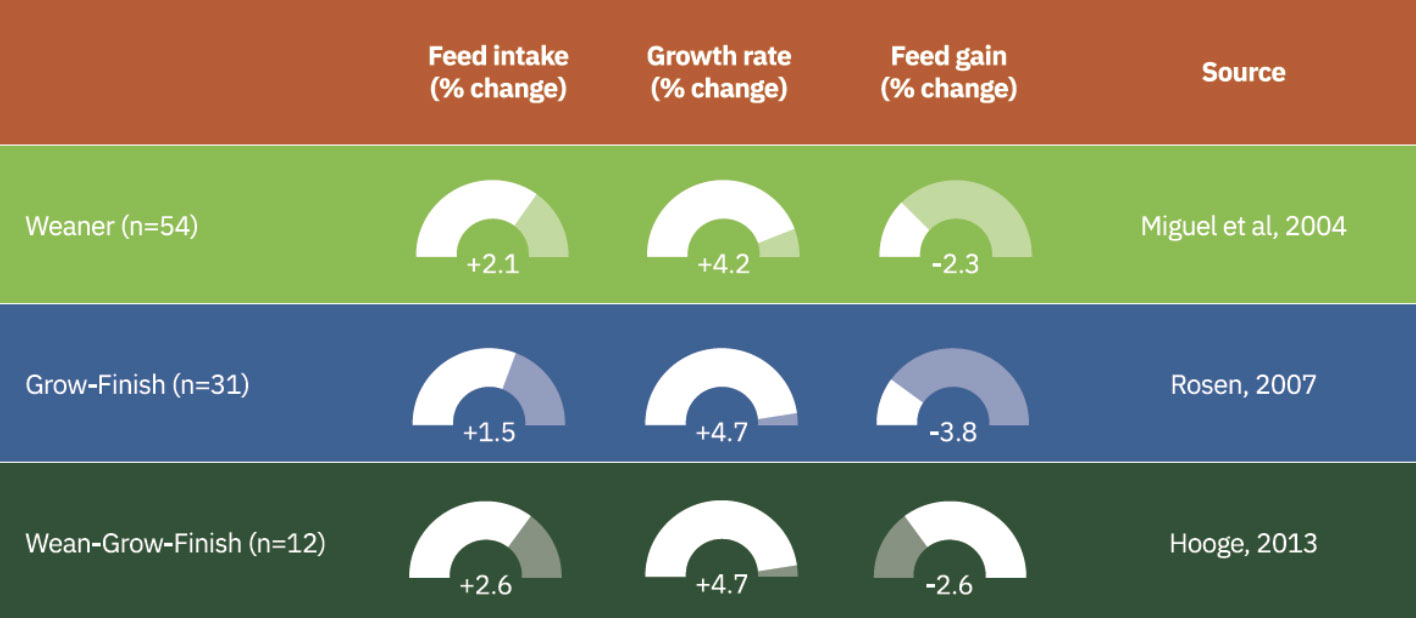Unveiling the mystery within

As a cornerstone of global agriculture and a vital source of protein, pigs have been integral to human sustenance and economic growth for centuries. However, the presence of intestinal disorders in pigs is a persistent concern that not only compromises their well-being but also has far-reaching implications on the agricultural and food industries.
Pigs, with their remarkable digestive physiology, are incredibly efficient at converting a diverse range of feedstuffs into valuable meat products. This unique capacity relies heavily on the proper functioning of their gastrointestinal systems, which unfortunately are highly susceptible to a variety of disorders. These disorders, if not identified and managed in a timely manner, can lead to reduced growth rates, increased mortality and economic losses for pig producers.
Furthermore, the emergence of zoonotic diseases underscores the critical importance of studying intestinal health in pigs, as such diseases directly impact public health and food safety. It is, therefore, important to explore the various factors that contribute to their occurrence, the consequences they bring, and the measures that can be taken to prevent and manage them, so that the pig industry can continue to strive for healthier and more sustainable pig production.
Factors Contributing to Intestinal Disorders
Intestinal disorders in pigs, such as colibacillosis, swine dysentery, porcine epidemic diarrhoea (PED) and ileitis — to name but a few — can result from a complex interplay of various factors. Understanding these factors is essential for preventing and managing these disorders in pig populations.
Some of the key contributors to intestinal disorders include:
Pathogenic microorganisms: Bacteria, viruses, and parasites can infect the pig’s gastrointestinal tract, causing diseases like colibacillosis, salmonellosis and coccidiosis. These pathogens can disrupt the balance of the gut microbiota and lead to various intestinal issues.
Dietary factors: The pig’s diet can significantly influence its digestive health. Overfeeding, underfeeding, improper nutrient balance, and the presence of mycotoxins in feed can all contribute to digestive problems.
Stress: Pigs are sensitive to stress, which can be caused by transportation, changes in environment, overcrowding, or social hierarchy within a group. Stress can weaken the pig’s immune system and make it more susceptible to intestinal diseases.
Environmental conditions: Poor sanitation, high humidity and temperature fluctuations in the pig’s living environment can create favourable conditions for the growth and transmission of pathogens.
Age: Different intestinal disorders may be more prevalent at specific stages of a pig’s life. For instance, neonatal piglets are prone to enteric colibacillosis, while older pigs may be more susceptible to diseases like swine dysentery.
The Consequences
Intestinal disorders in pigs can have significant consequences, affecting the health, welfare and productivity of the animals, as well as causing economic losses for pig farmers. Some of the more common consequences of intestinal disorders in pigs include reduced growth and weight loss as a result of reduced feed intake, impaired nutrient absorption and diarrhoea; severe dehydration, which can lead to lethargy, weakness and even death if not promptly addressed; reduced feed efficiency, as more feed is required to maintain body weight; and, in severe cases, increased mortality rates, especially in piglets exposed to diseases such as PED and swine dysentery.

Figure 1. Several studies show a significant increase in the growth performance of pigs (wean and wean through to finish) fed a diet containing Actigen.
The Solution
Proactive measures, such as implementing good management practices, ensuring proper nutrition, and focussing on disease prevention strategies, are crucial for minimising the occurrence and impact of intestinal disorders in pig populations. However, maintaining optimal gut health is unequivocally the linchpin in preventing intestinal disorders in pigs.
The pig’s gastrointestinal tract is a complex ecosystem where a harmonious balance of beneficial microorganisms, a well-functioning intestinal lining, and proper digestion are imperative for overall health. A robust gut microbiome acts as a formidable defence against pathogenic invaders, fostering resilience to intestinal diseases. Furthermore, a healthy gut lining ensures efficient nutrient absorption and minimises the risk of leaky gut syndrome, a condition associated with various digestive disorders.
Certain feed materials can help maintain a healthy gut by reducing the load of pathogenic bacteria and promoting gut microbial diversity, all of which will allow animals to respond more effectively to pathogenic challenges. Multiple research studies demonstrate that feeding Actigen, Alltech’s proprietary yeast mannan-rich fraction derived from Saccharomyces cerevisiae, can help to reduce gut colonisation due to the product’s ability to bind pathogens and support the health and lifetime growth performance of sows and their offspring. Recent data have demonstrated that Actigen supplementation can significantly reduce the attachment and adhesion of Escherichia coli and Salmonella Dublin to porcine intestinal cells. Preventing these bacterial pathogens from attaching to and colonising the gut can directly affect lowering inflammatory markers for infection, making Actigen an important part of best strategies to reduce intestinal disorders in pigs. Several studies have also demonstrated a significant improvement in the intestinal structure of piglets after weaning via Actigen supplementation in piglet diets. Subsequently, nutrient absorption and utilisation increased, followed by an improvement in piglet weight gain and feed conversion efficiency (Figure 1).
By prioritising strategies that promote gut health, pig producers can fortify their herds against a multitude of intestinal challenges, enhancing both animal welfare and economic viability in the process.
Conclusion
Understanding the specific causes and clinical signs of these intestinal disorders is crucial for effective diagnosis, treatment and prevention. Proper management, biosecurity measures, and veterinary care are essential for maintaining the overall health and productivity of pig populations, but the importance of establishing optimal gut health must never be overlooked. As the gut is the first line of defence against many diseases, supporting a healthy and diverse gut microbiome will reduce intestinal disorders by helping to make swine herds more resilient to pathogen challenges.
Applying an integrated approach, from sow to offspring, that incorporates feed strategies may form part of the solution for controlling pathogens and helping pig producers achieve optimal pig health and meet performance and profitability goals.





